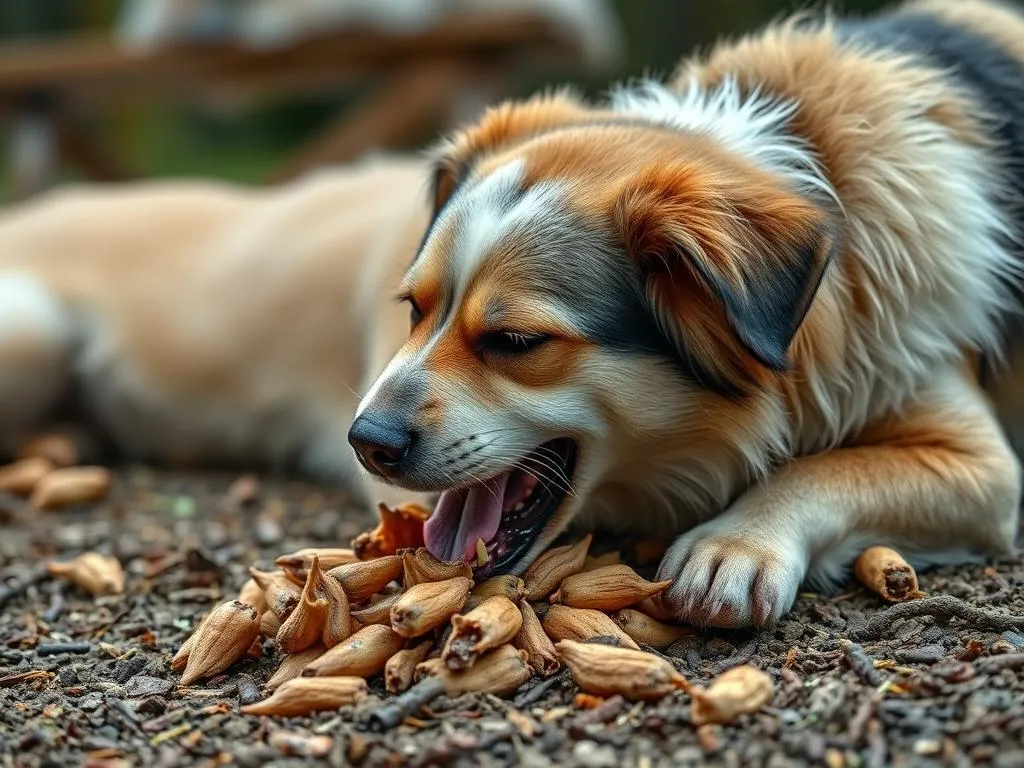
Introduction
Coprophagia is a term that describes the behavior of dogs eating their feces. While this may seem peculiar and off-putting to us as dog owners, it’s more common than one might think. Understanding why dogs engage in this behavior is crucial for their well-being and overall health. Addressing coprophagia not only prevents potential health risks but also promotes a harmonious relationship between dogs and their owners. This article caters to dog owners, trainers, and veterinarians, providing insights into managing this behavior effectively.
Understanding Coprophagia
What is Coprophagia?
The word “coprophagia” comes from the Greek words “kopros,” meaning feces, and “phagein,” meaning to eat. This behavior can be observed across various dog breeds, regardless of age or size. While it may be distressing for owners, it’s important to recognize that this behavior is often instinctual and can stem from various factors.
Possible Reasons for Coprophagia
Understanding the reasons behind dogs with coprophagia can help in addressing this behavior effectively. Below are some common factors that may lead to coprophagia:
- Behavioral Factors
- Attention-seeking behavior: Dogs may eat feces to garner attention from their owners, even if it’s negative attention.
-
Stress or anxiety: Dogs experiencing stress or anxiety may revert to this behavior as a coping mechanism.
-
Medical Factors
- Nutritional deficiencies: A lack of essential nutrients, especially if the dog’s diet is not balanced, can lead them to seek out feces for additional nutrients.
- Parasites or infections: Certain parasites may lead to increased appetite or unusual cravings, including the consumption of feces.
-
Gastrointestinal issues: Conditions that affect digestion may cause dogs to eat their feces to reabsorb nutrients that weren’t fully digested.
-
Environmental Factors
- Lack of proper exercise: Dogs that do not receive adequate physical activity may engage in coprophagia out of boredom.
- Boredom: A lack of mental stimulation can lead to various unwanted behaviors, including coprophagia.
Health Implications of Coprophagia
Risks Associated with Eating Feces
While some may view coprophagia as a harmless quirk, it poses several health risks:
- Transmission of parasites and diseases: Feces can harbor parasites like roundworms and giardia, which can be transmitted to dogs through ingestion.
- Gastrointestinal disturbances: Eating feces can disrupt a dog’s digestive system, leading to vomiting, diarrhea, or other gastrointestinal issues.
- Nutritional imbalances: Ironically, while dogs may seek out feces for additional nutrients, doing so can lead to deficiencies as they may neglect their balanced diet.
Long-term Health Issues
If dogs with coprophagia continue this behavior unchecked, they may face more severe health issues:
- Chronic infections: Regular ingestion of feces can lead to recurrent infections, compromising overall health.
- Impact on mental health and behavior: Coprophagia can exacerbate anxiety and stress, leading to a cycle of behavioral issues.
- Potential for developing more serious health conditions: Long-term consequences may include severe gastrointestinal disorders or infections that require medical intervention.
Diagnosing Coprophagia
When to Consult a Veterinarian
If you suspect your dog is engaging in coprophagia, it’s important to consult a veterinarian, especially if:
- You notice changes in your dog’s appetite or weight.
- There are signs of gastrointestinal distress, such as vomiting or diarrhea.
- Your dog exhibits increased anxiety or stress-related behaviors.
Diagnostic Tests
A veterinarian may recommend several diagnostic tests to uncover the underlying cause of coprophagia:
- Fecal exams: Checking for parasites or infections that could be influencing the behavior.
- Blood tests: Assessing for nutritional deficiencies or other health concerns.
- Dietary assessments: Evaluating the current diet to determine if it meets all nutritional needs.
Treatment and Management Strategies
Behavioral Modification Techniques
Behavioral modification can play a crucial role in addressing coprophagia. Here are several strategies:
- Positive reinforcement training: Reward your dog for not eating feces when out for walks or during bathroom breaks.
- Redirection strategies: If you catch your dog in the act, redirect their attention with a toy or a command.
- Providing mental stimulation and exercise: Engaging your dog in regular exercise and interactive play can reduce boredom and anxiety, minimizing the urge to eat feces.
Nutritional Adjustments
Evaluating your dog’s diet is essential in preventing coprophagia. Consider these adjustments:
- Evaluating diet for deficiencies: Consult your veterinarian to ensure your dog’s diet is balanced and meets all nutritional requirements.
- Supplements that may help deter coprophagia: Some supplements may promote better digestion or nutrient absorption, potentially reducing the urge to eat feces.
Environmental Management
Making adjustments to your dog’s environment can also help manage coprophagia:
- Keeping the yard clean: Regularly clean up after your dog and any other animals to reduce access to feces.
- Supervision during walks: Keep a close eye on your dog during walks, and be prepared to redirect their attention if they show interest in feces.
- Crate training as a preventative measure: When you cannot supervise your dog, using a crate can prevent them from accessing feces indoors.
Preventing Coprophagia
Establishing a Routine
Creating a consistent routine can significantly help in preventing coprophagia:
- Regular feeding schedule: Establishing a regular feeding schedule can help regulate your dog’s bathroom habits.
- Consistent bathroom breaks: Frequent bathroom breaks allow your dog to relieve themselves before they feel the urge to eat feces.
Training Techniques
Implementing effective training techniques can promote positive behavior:
- Commands to discourage eating feces: Teach commands such as “leave it” or “no” to discourage your dog from eating feces.
- Reward systems for desired behavior: Use treats and praise to reinforce positive behaviors when your dog avoids feces.
Creating a Positive Environment
A positive home environment can significantly affect your dog’s behavior:
- Reducing stressors in the dog’s life: Identify and minimize stressors, such as loud noises or changes in routine, that may contribute to anxiety.
- Engaging activities and socialization: Regular playdates, walks, and interactive games can keep your dog engaged and reduce boredom.
Frequently Asked Questions (FAQs)
Is coprophagia normal in dogs?
Yes, coprophagia is relatively common in dogs, especially among certain breeds. It’s essential to understand the underlying causes to address it effectively.
Can coprophagia be cured?
While many dogs can overcome coprophagia with the right training and management strategies, some dogs may continue the behavior. It’s crucial to remain patient and consistent.
What should I do if my dog eats another animal’s feces?
If your dog eats another animal’s feces, monitor them closely for any signs of illness. Consult your veterinarian to rule out parasites or infections.
Are certain breeds more prone to coprophagia?
Some breeds may exhibit coprophagic behavior more than others, often as a result of their temperament or instincts. However, it can occur in any breed and should be addressed individually.
Conclusion
Understanding and managing dogs with coprophagia is essential for their health and well-being. By identifying the underlying causes, implementing effective treatment and management strategies, and fostering a positive environment, dog owners can help their furry friends overcome this behavior. If concerns persist, seeking professional help from a veterinarian or dog trainer is encouraged. Promoting a healthy and happy lifestyle for dogs is the ultimate goal, and addressing coprophagia is a crucial step in that direction.









